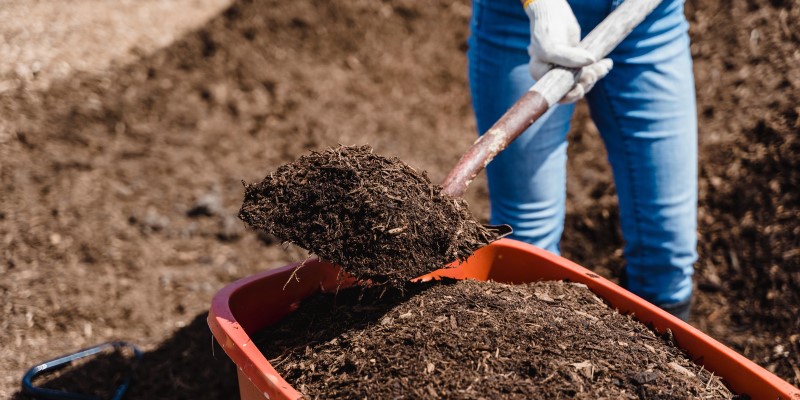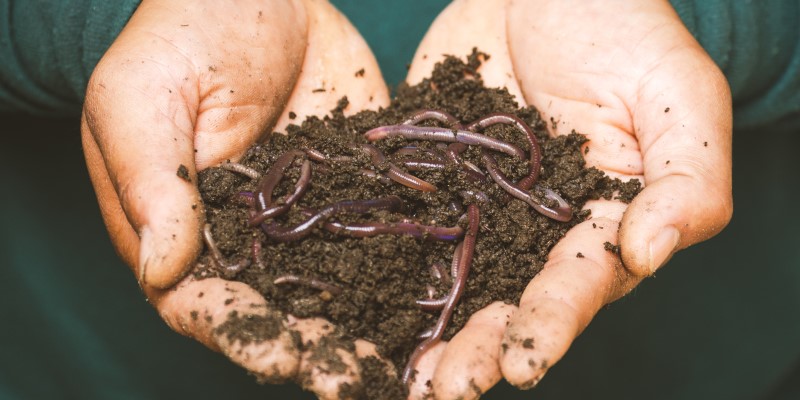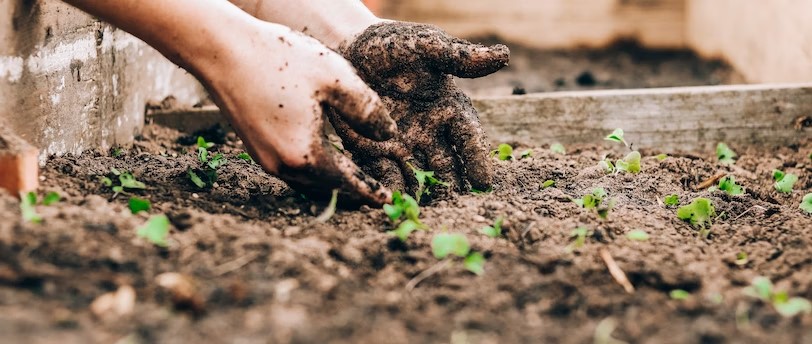Let’s get started at the beginning: Welcome to Organic Gardening 101. You’re probably tired of buying produce packed with chemicals and pesticides. Do you want to take control of what goes into your food and ensure that it’s healthy and free from harmful substances? Look no further than organic gardening. In this article, you will learn all the tips and tricks for growing your own chemical-free produce right in your backyard.
Organic gardening is not only better for your health, but it also benefits the environment. Avoiding synthetic fertilizers, pesticides, and herbicides can reduce pollution, conserve water, and support biodiversity. Plus, there’s nothing more satisfying than picking fresh vegetables or fruits straight from your garden, knowing they are entirely safe to eat. Whether you’re a seasoned gardener or just starting out, this guide will provide you with essential knowledge on selecting the right plants for your organic garden, understanding soil health and nutrients, natural pest control methods, implementing composting for sustainable gardening practices, as well as harvesting and enjoying the flavourful bounty of your hard work. So roll up your sleeves and prepare to embark on a journey towards healthier eating with these organic gardening tips!
Key Takeaways
- Composting techniques contribute to a sustainable environment and benefit plant health and productivity.
- Harvesting homegrown vegetables at peak ripeness, usually in the morning, preserves taste and nutritional value.
- Preserving methods such as canning, freezing, and drying lock in the flavour and nutrients of homegrown vegetables.
- Organic gardening promotes sustainable and environmentally friendly food growing, avoiding chemicals in produce.
Table of Contents
Selecting the Right Plants for Your Organic Garden
When selecting plants for your organic garden, make sure you choose varieties that are well-suited to your specific climate and growing conditions. This is essential for ensuring the success of your garden and maximizing the yield of chemical-free produce. Different plants thrive in different environments, so it’s essential to do some research before making your selections.
One key aspect of plant selection is choosing organic seeds. Organic seeds come from plants that have been grown without the use of synthetic fertilizers or pesticides. Starting with organic seeds, you can be confident that your plants will grow into healthy, chemical-free specimens. Look for certified organic seeds from reputable suppliers to ensure their quality.
Another factor to consider when selecting plants is the length of the growing season in your area. Some vegetables and fruits require a longer growing period, while others can be harvested relatively quickly. Understanding the length of your growing season will help you choose plants with enough time to mature and produce a bountiful harvest.
By taking these factors into consideration when selecting plants for your organic garden, you can set yourself up for success right from the start. Choose varieties suitable for your climate and growing conditions, opt for organic seeds, and consider the growing season’s length to maximise your chemical-free produce yield. With a bit of planning and research, you’ll be well on your way to enjoying a thriving organic garden filled with delicious homegrown fruits and vegetables.

Understanding Soil Health and Nutrients
Understanding the importance of soil health and nutrient levels is essential for successful cultivation of crops. Soil testing is crucial in determining the nutrient deficiencies or excesses in your soil. By assessing the nutrient levels, you can decide what amendments are needed to optimize plant growth. A soil test will provide valuable information on pH levels, organic matter content, and specific nutrient concentrations. This knowledge allows you to tailor your gardening practices accordingly, ensuring your plants receive the nutrients necessary for healthy growth.
Nutrient deficiencies are common in gardens and can hinder plant development. Symptoms such as yellowing leaves or stunted growth may indicate that certain nutrients are lacking in the soil. Common deficiencies include nitrogen, phosphorus, and potassium, known as macronutrients. Micronutrients like iron, manganese, and zinc are also important for plant health but are required in smaller quantities. Identifying these deficiencies early on through regular soil testing allows you to take corrective measures promptly. Adding organic fertilizers or compost rich in these deficient nutrients can help replenish them naturally without using chemical-based solutions.
Soil testing not only helps identify nutrient deficiencies but also prevents over-fertilization. Excessive application of fertilizers can lead to nutrient imbalances and even harm beneficial organisms in the soil. By understanding the current nutrient levels of your soil, you can avoid unnecessary fertilization and reduce environmental impact. Furthermore, maintaining proper soil health promotes overall plant resilience against pests and diseases by creating a balanced ecosystem underground.
Understanding soil health and conducting regular soil tests are vital steps for any organic gardener aiming to grow chemical-free produce successfully. By assessing nutrient levels through testing, you can address any deficiencies present in your garden’s soil promptly and effectively. Adjusting your gardening practices based on this knowledge ensures optimal plant growth while minimizing environmental impact through responsible fertilizer use. Remember that healthy soils lead to healthy plants!
Natural Pest Control Methods for a Chemical-Free Garden
Looking for ways to keep pests out of your garden without using chemicals? One natural pest control method you can try is attracting beneficial insects to your garden. Beneficial insects, like ladybugs and lacewings, feed on harmful pests such as aphids and caterpillars. To attract these helpful creatures, you can plant flowers they are known to be drawn to, such as marigolds or daisies. Additionally, providing them with a water source and shelter will encourage them to stick around and feast on the unwanted pests in your garden.
Another effective method for natural pest control is companion planting. This involves planting certain types of plants together that have mutually beneficial relationships. For example, planting basil near tomatoes can help repel tomato hornworms. Similarly, growing mint near cabbage plants can deter cabbage moths. By strategically placing companion plants throughout your garden, you can create an environment that naturally repels pests without the need for chemical pesticides.

In addition to attracting beneficial insects and practising companion planting, you can take other practical steps to control pests naturally. One method is regularly inspecting your plants for signs of infestation so that you can take action before it becomes a significant problem. Removing damaged or diseased leaves or fruits will help prevent pests from spreading further. You can also use physical barriers like netting or row covers to protect vulnerable crops from insect damage.
By incorporating these natural pest control methods into your gardening routine, you can maintain a healthy and chemical-free garden while keeping pesky insects at bay. Attracting beneficial insects through flowers and providing them with the right conditions will ensure they stay in your garden and continuously ward off harmful pests. Companion planting allows different plant species to work together to defend against common enemies, while regular inspections and physical barriers provide additional protection for your precious produce. So go ahead and try out these techniques and your garden will thrive!
Implementing Composting for Sustainable Gardening
To create a more sustainable garden, you can easily implement composting – an essential practice that will enrich your soil and nourish your plants. Composting benefits your garden in numerous ways. First, it improves the overall health of your soil by adding organic matter and nutrients. This creates a fertile environment for plant growth and enhances their ability to resist diseases and pests. Second, composting helps retain moisture in the soil, reducing the need for frequent watering. Lastly, it reduces waste by recycling kitchen scraps and yard trimmings into valuable fertilizer.
There are several composting techniques you can choose from depending on your space and preference. One common method is backyard composting using a bin or pile. Collect kitchen scraps like fruit peels, coffee grounds, eggshells, vegetable trimmings, and yard waste such as grass clippings and leaves. Layer these materials in alternating green (nitrogen-rich) and brown (carbon-rich) layers to achieve the right balance of nutrients for decomposition. Turn the pile occasionally to aerate it and speed up decomposition.
Another option is vermicomposting, which uses worms to break down organic materials into nutrient-rich castings called vermicompost or worm castings. Create a suitable habitat for the worms by placing them in a container filled with moist bedding material such as shredded newspaper or cardboard. Feed them kitchen scraps regularly while avoiding meat, dairy products, oily foods, or anything that could attract pests. The worms will happily munch on these scraps while producing high-quality compost that can be used directly in your garden.
By implementing composting techniques in your garden, you contribute to a more sustainable environment and reap numerous benefits for your plants’ health and productivity. Experiment with different methods until you find one that works best for you – whether it’s traditional backyard composting or vermicomposting with worms. Get started today and watch your soil become richer, your plants thrive, and your garden flourishes like never before.
Harvesting and Enjoying Fresh, Flavourful Produce
Start savouring the rewards of your hard work by harvesting and indulging in your garden’s fresh, mouthwatering produce. There’s nothing quite like the taste of homegrown vegetables that have been nurtured with love and care. When it comes to preserving the taste and nutritional value of freshly harvested produce, timing is key. The best time to harvest most vegetables is when they are at their peak ripeness, usually early in the morning before the sun gets too hot. This ensures you get the maximum flavour and nutrients from your crops.
Once you’ve harvested your bounty, it’s important to handle them with care to maintain their freshness. Avoid washing them until just before you’re ready to use them, as excess moisture can promote spoilage. Instead, gently brush off any dirt or debris with a soft cloth or brush. If you have an abundance of produce you won’t be able to consume immediately, consider preserving them through canning, freezing, or drying. These techniques help lock in both the flavour and nutritional value of your homegrown vegetables so you can enjoy them throughout the year.

Now that you’ve successfully harvested and preserved your fresh produce, it’s time to get creative in the kitchen! Experiment with different recipes using your homegrown vegetables to add a burst of flavour to your meals. Whether it’s a simple salad showcasing crisp lettuce leaves or a hearty stir-fry packed with vibrant bell peppers and zucchini, there are endless possibilities for incorporating fresh produce into your dishes. Don’t be afraid to try new flavours and combinations – this is what organic gardening is all about—growing healthy food that nourishes our bodies and delights our taste buds.
Harvesting and enjoying freshly picked produce from your own garden is one of the most satisfying aspects of organic gardening. By following proper harvesting techniques and preserving methods, you can preserve your homegrown vegetables’ taste and nutritional value. Then, let your culinary creativity shine by experimenting with delicious recipes that showcase the flavours of your garden. So indulge in the fruits (and vegetables) of your labour and experience the joy of farm-to-table eating at its finest!
Conclusion
Organic gardening is a rewarding and sustainable way to grow your own chemical-free produce. You can create a thriving organic garden that produces fresh and flavourful fruits and vegetables by selecting the right plants for your garden, understanding soil health and nutrients, implementing natural pest control methods, and utilizing composting techniques.

